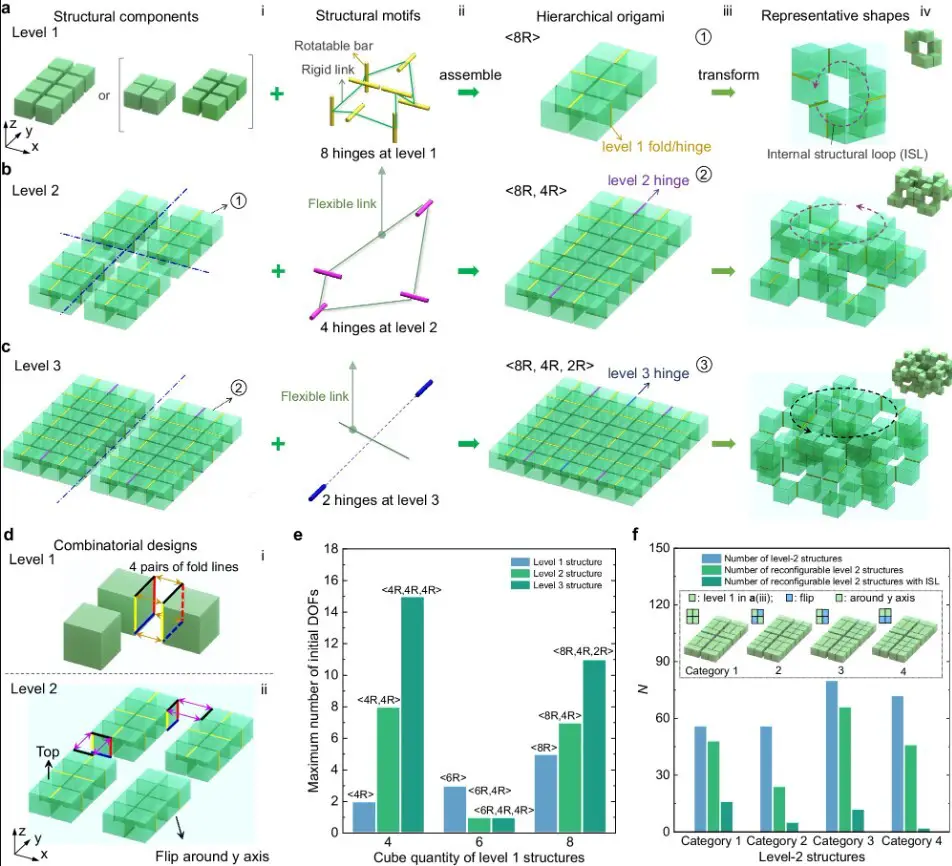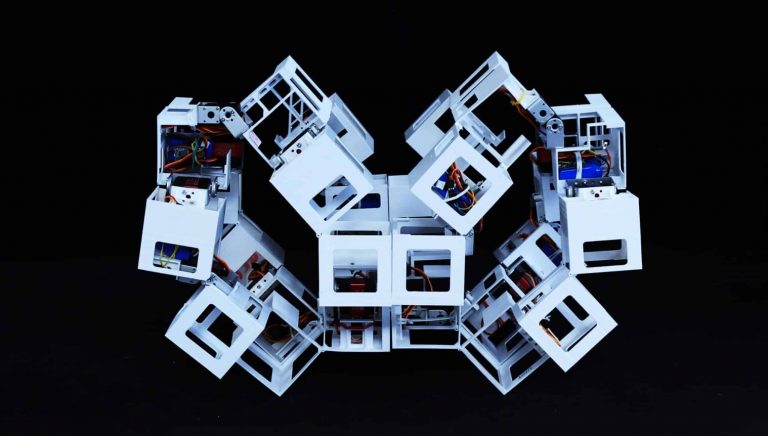Inspired by the paper-folding art of origami, engineers at North Carolina State University have developed a plastic cubed structure that can transform into over 1,000 configurations using only three active motors. This innovation could lead to the creation of versatile robotic systems capable of performing multiple functions and carrying loads, potentially useful in space exploration. The findings were published in the journal Nature Communications.
The researchers assembled 36 hollow plastic cubes with rotating hinges, some fixed with metal pins and others activated wirelessly by motors. This setup allowed the structure to morph into various shapes, such as tunnels, bridges, and multi-story architectures. Remarkably, the transformer bots can move in multiple directions and carry a load three times their weight by altering their shape.

The team aims to enhance the transformer bots’ capabilities, making them more robust to handle larger loads. Future plans include designing structures that can transform into practical shapes like cars and testing their applications in real-world scenarios, including space robotics. The modular design allows these bots to be sent to space flat and then assembled into shelters or habitats.
The research team includes Jie Yin, Antonio Di Lallo, Yanbin Li, Hao Su, and Junxi Zhu, among others. They believe that these shape-shifting bots have the potential to be deployable and configurable, offering innovative solutions for space missions and other applications.




